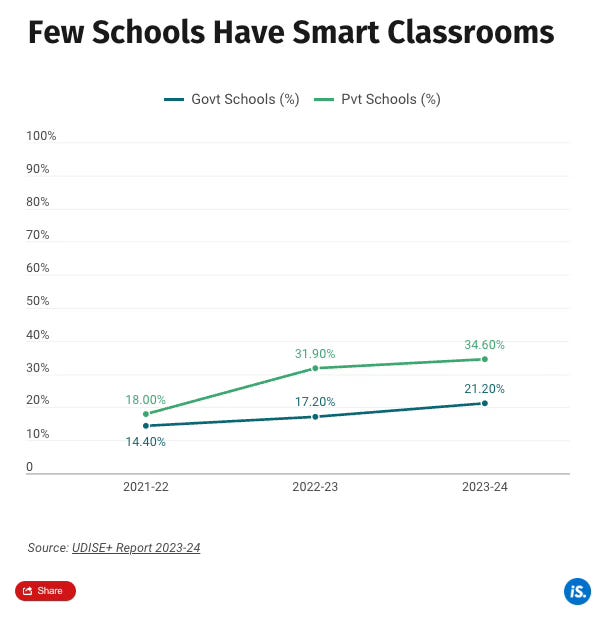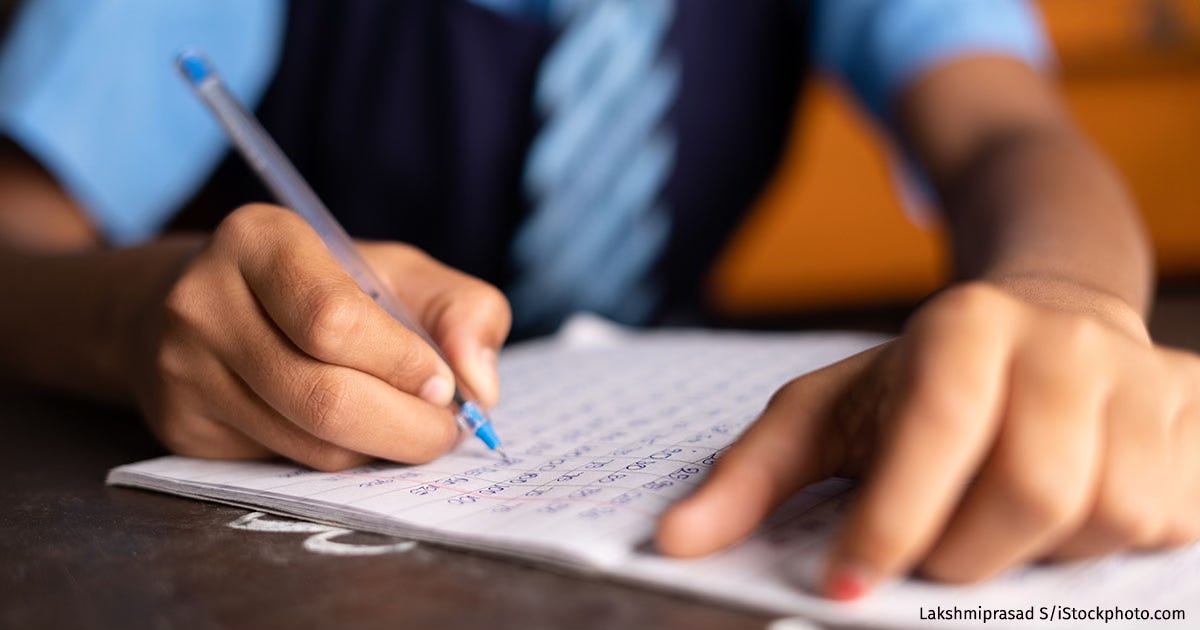The Digital Gap In Indian Schools
Also this week, how denial of school admission to Rohingya children is a human rights violation, and the health impacts of river water contamination
Dear reader
Last week, we wrote about India’s mission to connect its villages through broadband under the BharatNet programme. Less than a third of India’s 650,000 villages have been covered under the programme, we reported.
This week, we looked at one of the impacts of this lack of access: the absence of digital learning.
The government’s DIKSHA portal has thousands of textbooks in hundreds of languages, with additional material accessible through QR codes. But the infrastructure in schools has not kept pace. More than half of India’s government schools do not have a computer for teaching purposes—and this includes desktops, laptops and tablets. A similar number do not have access to the internet.
This means many millions of Indian students are growing up without access to a computer or the internet at school. And this translates to a burgeoning potential workforce without basic skills such as handling a spreadsheet.
The programme to introduce smart classrooms—which use digital boards, smart TVs etc for pedagogy—is funded through the Union government’s Samagra Shiksha umbrella, but we found that funds remain unspent even as outcomes are far from ideal. Vijay Jadhav explains in five charts.
In December, the then Aam Aadmi Party government of Delhi issued a circular warning schools to ensure they do not give admission to “illegal Bangladeshi migrants”. And while the circular did not specify it, former chief minister Atishi—in a post on the social media platform X—said this includes the Rohingya.
India is home to over 22,000 Rohingya refugees and asylum seekers, who fled war and persecution in Myanmar. The community is termed the “most persecuted minority in the world”, with more than a million people living in camps in Bangladesh.
For over two years now, my colleague Shreehari Paliath has been reporting on the lives of the Rohingya in India—how they struggle to access healthcare, livelihoods, and access to justice.
This week, Shreehari speaks to petitioners and lawyers in a new public interest litigation in the Supreme Court to explain how this denial of admission violates human rights.
Amid the political uproar over a report on the contamination of water in the context of the Mahakumbh, Parikshit Nirbhay speaks with doctors from Jharkhand, Lucknow and Delhi to understand the health implications.
We’ll see you next week; have a good weekend.






